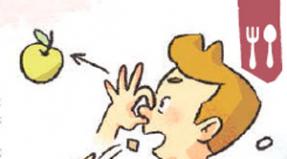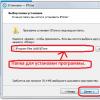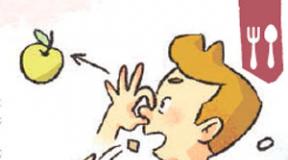The meaning of the word put in a long box. Why do I procrastinate and how can I overcome this habit? Do not exceed the resistance threshold
Where this expression came from is not known for certain today. There are several opinions.
First. During the time of Tsar Alexei Mikhailovich, a box was installed in which people put their complaints and requests. The sheet on which they wrote was then rolled into a scroll (a tube). Therefore, documents were kept in boxes. So... Complaints were collected from the people, but no one answered them and no decisions were made.
Second. Officials in the 19th century sorted complaints according to a certain principle, putting them in filing cabinets, which were long boxes. Remember how it used to be in the library or archive. At that time, documents were no longer rolled into scrolls. But, nevertheless, they also looked at them for a very long time.

Third. As I said above, in those days when documents were rolled into scrolls, they were put in long boxes (stored like this). Well, such a case, let’s say a judicial one, will be put in such a box, and they will forget about it, they just don’t consider it necessary to consider it for some reason.
Each version has its place. Nowadays there are no such boxes anymore, we are gradually abandoning paper media and switching to electronic ones, but... this does not make our office work work better or faster.
Photo: Katarina Gondova/Rusmediabank.ru
“Procrastination,” that is, putting off something important until tomorrow, is not only the killer of your dreams, it can literally become a killer. And your health, and relationships, and career, and family, sometimes – life itself. If you don't immediately shorten your "long drawer", you have yourself to blame!What are we putting off?
Yes all! All we do is put it off.money for a future purchase;
using a new thing until the opportunity arises;
Mondays, from which a new life begins;
fitness, sports, active recreation;
walks;
language learning;
serious relationship;
birth of children;
going to the zoo with them;
cleaning, laundry, washing dishes, routine, unpleasant work;
clarifying relationships and dotting all the i’s;
completion of started tasks;
repair;
calling mom, dad, friend;
confession and communion;
;
forgiveness;
declaration of love.
You can list them endlessly, and everyone will have their own list. Meanwhile, our whole life is on this list! We tend to put off what's important. To one degree or another, this is exactly what determines our future.
Why do we procrastinate?
Now let's think about why we do this. Perhaps this will help us overcome the consequences of postponing important things, that is, by and large, postponing our own life, for which, as we know, we only have one chance.Why?
1. We get tired of the routine, boring, unpleasant side of these things.
2. Sometimes the quick achievement of results is scary. “We’ll do everything today, there’ll be nothing left for tomorrow.”
3. Fear of failure really discourages you from completing things, especially if they are really difficult. “What if it doesn’t work out?” - a powerful brake that forces us to put off matters that are fateful for us.
4. We're just lazy.
5. Lost interest and no incentive to continue what you started.
6. It seems to us that our efforts are in vain. Futility of effort kills initiative. If we do not have success, victories, it is extremely difficult to complete things, because they seem meaningless.
7. It seems to us that the time has not yet come. Everything is ahead or we are not yet ready for the final stage.
Consequences of delay
It would seem that there is nothing dangerous here, well, a person puts his life on hold, let him do what he wants. This is his personal business. It turns out not always. Sometimes someone’s procrastination leads to family quarrels, conflicts, stressful situations, and innocent people fall within the range of action.And the child understands that things started must be completed in order to move forward. But in life we come up with thousands of excuses and reasons that help us cope with our own dishonesty and feelings of guilt for unfulfilled tasks.
We resort to killer arguments like
– lack of time, money, strength, means, desire, incentives, etc.;
– the irrelevance of this matter at the moment, there are more important things to do, now is inconvenient, not the time, not the place;
– interference from loved ones, relatives, friends and enemies, circumstances.
But our excuses only accumulate, turning into a snowball that inexorably moves towards us and threatens to crush us with the whole mass of unfinished plans and unfulfilled expectations.
And then we begin
get nervous and freak out;to make mistakes;
hurry;
freeze;
run away, etc.
And it's catching up with us
– migraine;
– stress;
- diffidence;
– illness;
– quarrels, reproaches, criticism;
– conflicts, breakups and even divorces.
Do you still think that family quarrels have nothing to do with procrastination? Look at your life unbiasedly and as critically as possible. And you will find that
taps are leaking;
dishes become moldy in the sink;
the laundry does not wash itself;
the dust under the bed inexorably turns into snowdrifts;
“Madam I’m sitting” without fitness and with becoming wider and wider;
without care, hair and face turn into a washcloth and washboard;
a mother who no one calls becomes lonely and unhappy;
the dog is sad without a walk;
life is slowly but surely sliding into a swamp of routine and boredom (without travel, walks, a child, new meetings).
This is a catastrophe! Something needs to be changed urgently!
How to escape from unfinished business?
There is an exit.You can conduct an audit and select those without the completion of which it is impossible to live further.
And immediately, just this very second, begin to complete them. Not on Monday, not tomorrow, but just now. One per hour, per day, per week. And then you look, and there will be no unfinished business left.
You should probably just forget about other, less important matters. Cross them off the to-do list. Consider them already completed. If you haven't finished them yet, it means you don't really need them.
We must always remember that unfinished things are like unfinished gestalts and constantly stop our movement forward. We cannot start new things until the old ones are completed. Do not pour water into a full cup.
Therefore, obeying the law of filling voids, we should periodically clear away our rubble and make room for new good beginnings and deeds. This is especially true on New Year’s Eve, but you can find any other occasion - New Year according to the Eastern calendar, a new month, a birthday, even, no matter how trite, Monday. And the vacated space will be taken by new, interesting and much-needed endeavors.
Most likely, right now you are procrastinating and are specifically reading this article so as not to do something more important. Over the course of a year, I conducted an experiment and tested on myself all sorts of techniques to increase personal effectiveness. As I became hyper-informed about my time use, I noticed this: It turns out that I was procrastinating a lot more than I thought. I kept track of my time and found that in one week I spent six hours procrastinating on assignments. And I’m only talking about the time spent on procrastination that was taken into account.
This made me ask questions: “Why do we procrastinate even when we know it is against our best interests? How to beat procrastination? Can this be done without disgusting oneself and the methods that will be used in the process?”
Wide coverage
15-25% of people, according to psychologists, experience persistent procrastination. Moreover, according to a study by a group of scientists, over the past 25 years the level of procrastination among the population has increased
I spoke with researchers and read dozens of articles in scientific journals in search of an answer. The information I found formed the basis of my book, and I became convinced that many of the recommendations I received, fortunately, really work.
Why are we prone to procrastination?
First of all, I realized that it is human nature to procrastinate. The author of The Procrastination Equation, Piers Steele, writes: approximately 95% of people admit to procrastinating. I suspect that the remaining 5% are not telling the truth. Procrastination itself is “purely a subconscious, emotional response to something we don’t want to do,” says Tim Pychyl, author of Don’t Procrastinate. The more unpleasant the work, the more you want to put it off.
In his research, Pychyl identified seven factors that increase the unattractiveness of a task. Think about something you want to put off right now, and you'll see that this task shares many, if not all, of the properties that Pychyl noted as making procrastination more likely:
Disappointment,
Complexity,
Ambiguity
Vagueness,
Lack of internal satisfaction (the process does not arouse your interest),
Lack of meaning for you personally.
At the level of neurological functions, procrastination cannot be logically explained. It originates in the part of the brain responsible for emotion, your limbic system, and has a strong influence on the prefrontal cortex, the part of the brain responsible for your rational actions. This part of the brain gives up the moment you quit your job and start reading Facebook or binge-watching House of Cards.
But there is a way to help the part of the brain responsible for logical actions win. As soon as you feel the conflict between logical behavior and emotions approaching, begin to resist the urge to procrastinate. Here are the most best ways, which I tried on myself.
Change the direction of procrastination factors
Decide which of Pychyl's seven factors of procrastination are influencing the job you dread. Then try to look at the task differently to make completing it more compelling. Take, for example, preparing a quarterly report. If this work seems boring to you, you can turn it into a game. Time how many words you can write in 20 minutes. Or, if you find a work assignment ambiguous and vague, organize your workflow into specific steps that you and your team will track each month.
Do not exceed the resistance threshold
When a task contains procrastination factors, we resist completing it. But how high is the level of such resistance? Let's imagine that in preparation for a future project you have to cope with some rather boring research. To find out your resistance threshold, use a sliding scale to estimate the effort you are willing to expend on this task. For example, can you read with concentration for one hour? No, this period of time is not suitable? What if you limit it to 30 minutes? Reduce it until you find the value at which resistance to work goes away - and start it.
Do something to get started
It will be easier for you to work on a task if you overcome critical moment started it. This is not so difficult for the simple reason that the tasks that you want to put off are rarely so bad that they cannot even be started. At the start, if we can see that there are fewer factors in a task that cause procrastination than initially expected, we subconsciously re-evaluate it.
Research shows that we remember unfinished tasks better than fully completed projects. It's a bit like an easy-to-remember tune: if it stops suddenly in the middle, it'll be stuck in your head for the rest of the day. Starting work on a task presupposes its continuation, it will force you to return to work later.
Five types
Researcher Noah Milgram identifies five types of procrastination:
daily (household) procrastination – putting off household chores that should be done regularly;
procrastination in making decisions, including minor ones;
neurotic procrastination – postponing vital decisions, such as choosing a profession or starting a family;
compulsive procrastination. This is a combination of two types of procrastination - behavioral and decision-making;
academic procrastination – putting off school assignments, preparing for exams, etc.
Assess what procrastination costs you
This tactic works best when you want to put off large tasks for later. Of course, there is no point in spending 20 minutes calculating the cost of missing an evening run. But for a goal like retirement savings, it's worth figuring out the cost of procrastination. Add to your list any tasks related to retirement savings that could be negatively impacted by procrastination. Think about how this will affect your personal life, finances, stress levels, well-being, health, etc. It is also worth making a list of postponed tasks, personal and professional, large and small, and calculating the cost of procrastination for each of them.
Like many phraseological units, the expression “shelve”, meaning to delay something for a long period of time, has ambiguous origins.
It is likely that this phraseological unit originates during the reign of Tsar Alexei Mikhailovich Romanov, nicknamed “The Quiet One,” on whose orders a long box for so-called petitioners was installed in the village of Kolomenskoye (the Tsar’s favorite residence) next to his palace.
Anyone could leave a message to the king in this box with a complaint or request. Complaints were collected only after this was completed completely. spacious drawer. Then the messages were considered by clerks and boyars for a long time. And in Russian the word “dolgiy” means “long”. So it turns out that in order to file a petition, you need to “put it in a long box.” But still, we say: “put it on the back burner,” and not “put it away.”
Therefore, other philologists believe that the origin of the “long box” lies in the nineteenth century. At that time, various petitions, complaints and petitions were accepted to sort. So the officials laid out the submitted papers in different boxes. Things that didn't require quick solution or they just didn’t want to look at it, they put it away in a desk drawer, which could be called “long”.
But it is also possible that the phrase “to shelve” came into Russian from German: etwas in die lange Truhe legen, meaning “to put something in a long chest.” Indeed, in the eighteenth century, German courts actually had large and long chests for storing court papers. So, the affairs of the poor, unlike the nobility, whose affairs were resolved very quickly, were kept and waited for their “finest” hour in the farthest chest: well, what is not a “long box”.
In the end, I would like to note that the meaning of the last two versions fits very well with another phraseological expression “to put under cloth”, because official desks in government institutions were basically covered with cloth.
The expression “put on the back burner” has, in principle, only one meaning. Moreover, it is consonant with the expression itself and has negative meaning when consumed. It means putting off unimportant tasks for later, unbearably delaying their implementation.
Alternatively, the verbal expression “put on the back burner” is considered to be derived from the nominal phraseological phrase “long box,” which is most often used to denote the postponed execution of something. For example, a will is a postponement of the execution of some actions for a time after the death of a person.
It is much more interesting to learn about where this phraseological turn of phrase came from in our great and mighty Russian language. Because there are several versions of its origin.
Version one is the official one. It is believed that the origins of the meaning of the expression “put on the back burner” go back to the seventeenth century, during the reign of Alexei Mikhailovich the Quiet, the father of Peter the Great.
It was he who established a box in the square opposite his Kolomna Palace for submitting all requests, proposals, petitions and complaints. Since at that time all records were made on long sheets of paper - rolls or birch bark - the box was quite long in shape.
The problem was that the box was checked very rarely, so complaints rarely reached the sovereign. Sometimes they didn’t arrive at all, because the courtiers sorted them out. Since we had to wait a very long time for an answer, the common people called this box the long one.
Version two is semi-official. Some believe that the expression “shelving” acquired its meaning much later, in the nineteenth century. At this time, in the offices and offices of officials there were obligatory chests of drawers with file cabinets of things that needed to be done. The drawers in these filing cabinets were very long.
And often cases that did not require urgent consideration were put off in the longest and furthest drawer. Hence the expression.
From the same working environment came a synonymous phraseological expression - put under the carpet. These same officials “hid” or put aside unnecessary matters under the cloth that covered the desks in their offices.
The third version is folk. In the Russian language, the semantics of the words “long” and “long” coincide in the common people. In other words, these words are synonyms.
Even the pronunciation of the phraseological phrase varies - some use both the pronunciation “put on the back burner” and the pronunciation “put on the back burner.”
Version four is foreign. In German there is a synonymous phraseological phrase: etwas in die lange Truhe legen. Literally this expression means to put something in a long chest. Most often in Germany, this expression is used in the judicial and legal industries to refer to too long an investigation of a case, “grouse”
But upon detailed semantic examination, it is very similar to Russian. Some philologists believe that the Russian-language expression is a reflection of the German-language version for certain situations.
Download this material:



















